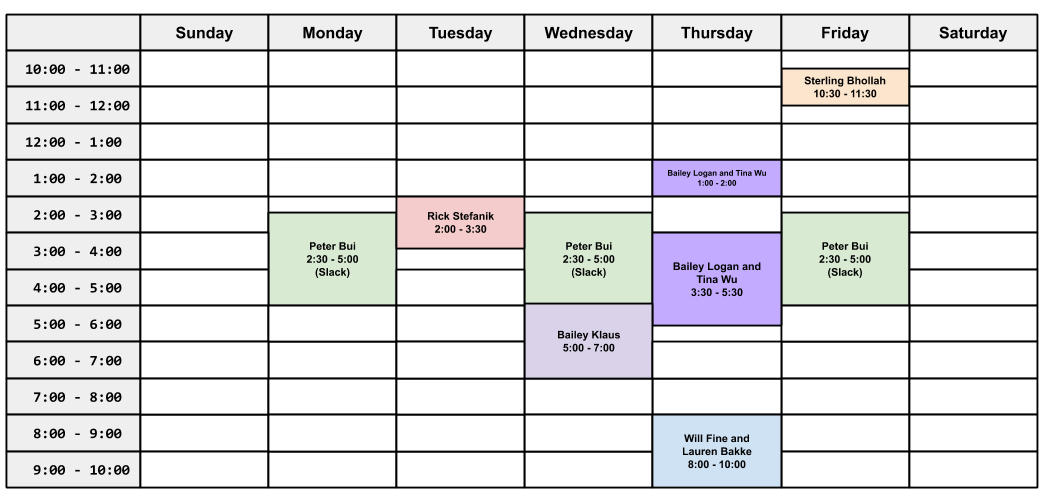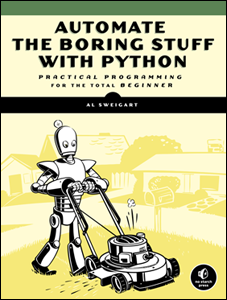Principles of Computing
CSE 10001 Principles of Computing is an introductory Computer Science and Engineering course that explores computer science by examining the questions of what is computing, how do we compute, how do different aspects of modern computing technology work, and how does computing impact the individual and society. In addition to studying how modern computing hardware, software, and communications function, students will also utilize scripting languages to explore and practice foundational programming concepts such as syntax, variables, conditional execution, iteration, functions, data structures, and algorithms.

Upon successful completion of this course, students will be able to:
-
Identify the main hardware components of a modern computer system, describe how digital information is stored and manipulated, and explain how a CPU functions.
-
Perform basic algorithms, distinguish between different types of programming languages, and describe what abstractions operating systems provide.
-
Understand basic networking concepts, describe how the Internet and World Wide Web work, compose a basic website, and discuss the various social and ethical issues surrounding information sharing and privacy.
-
Employ common programming patterns and abstractions, choose appropriate data structures, trace the execution of programming code, and construct Python code to solve problems and automate processes in different domains and disciplines.
Logistics
Class Information
- Lecture/Lab
- M/W/F 10:30 AM - 11:30 AM EST
- Location
- Zoom Meeting 701-090-050
- Mailing List (Class)
- sp20-cse-10001-01-group@nd.edu
- Mailing List (Staff)
- sp20-cse-10001-01-staff-list@nd.edu
- Slack
- #cse-10001-sp20
- GitLab
- nd-cse-10001-sp20
Instructor
- Instructor
- Peter Bui (pbui@nd.edu)
- Office Hours
- M/W/F 2:30 PM - 5:00 PM EST, and by appointment
- Office Location
- nd-cse.slack.com
Teaching Assistants
- Teaching Assistant
- Lauren Bakke (lbakke@nd.edu)
- Teaching Assistant
- Sterling Bhollah (sbhollah@nd.edu)
- Teaching Assistant
- William Fine (wfine@nd.edu)
- Teaching Assistant
- Bailey Klaus (bklaus@nd.edu)
- Teaching Assistant
- Bailey Logan (blogan1@nd.edu)
- Teaching Assistant
- Rick Stefanik (rstefani@nd.edu)
- Teaching Assistant
- Tina Wu (ywu6@nd.edu)
Help Protocol
- Think
- Slack
- Think
- Zoom
- Think
Office Hours

Zoom Office Hours
All teaching assistant office hours will take place in Zoom Meeting 172-815-439 . Please use the main session for general questions. If you have an individual question, then request a private breakout room with a teaching assistant.Schedule
| Unit | Date | Topics | Assignments |
|---|---|---|---|
| Hardware | |||
| Inside a Computer | Wed 01/15 | Introduction, Hardware Slides Slides | Reading 00 |
| Fri 01/17 | Programming Slides Notebook | Lab 00 | |
| Information Representation | Mon 01/20 | Data Representation Slides Notebook | Reading 01 |
| Wed 01/22 | Variables, Expressions, Functions Slides Notebook | ||
| Fri 01/24 | Functions, RGB Colors Notebook | Lab 01 | |
| CPU, Conditional Execution | Mon 01/27 | CPU Slides Notebook | Reading 02 |
| Wed 01/29 | Conditional Execution Slides Notebook | ||
| Fri 01/31 | Letter Grade, Stadium Seating Notebook | Lab 02 | |
| Software | |||
| Iteration, Lists | Mon 02/03 | Iteration Slides Notebook | Reading 03 |
| Wed 02/05 | Lists Slides Notebook | ||
| Fri 02/07 | Dice Rolling, Compound Interest Notebook | Lab 03 | |
| Algorithms | Mon 02/10 | Algorithms Slides Notebook | Reading 04 |
| Wed 02/12 | Strings Slides Notebook | ||
| Fri 02/14 | Duplicates Notebook | Lab 04 | |
| Data Structures | Mon 02/17 | File I/O Slides Notebook | Reading 05 |
| Wed 02/19 | Dicts Slides Notebook | ||
| Fri 02/21 | Spell Check Notebook | Lab 05 | |
| Software Systems | Mon 02/24 | Operating Systems Slides Notebook | Reading 06 |
| Wed 02/26 | Image Processing Slides Notebook | ||
| Fri 02/28 | Image Filters Notebook | Lab 06 | |
| Midterm | Mon 03/02 | Intellectual Property Slides | Reading 07 |
| Wed 03/04 | Review Notebook | ||
| Fri 03/06 | Checklist Midterm | ||
| Spring Break | |||
| Communications | |||
| Networking | Mon 03/23 | The Internet Slides Panopto Zoom | Reading 08 |
| Wed 03/25 | Networks Notebook Panopto Zoom | ||
| Fri 03/27 | Bandwidth and Latency Zoom | Lab 07 | |
| Web Programming | Mon 03/30 | HTTP, HTML, CSS Slides Panopto Zoom | Reading 09 |
| Wed 04/01 | Static Pages Slides Zoom | ||
| Fri 04/03 | Static Website | Lab 08 | |
| Data and Information | Mon 04/06 | Cloud Computing Slides Panopto Zoom | Reading 10 |
| Wed 04/08 | Advertising Slides Panopto Zoom | ||
| Fri 04/10 | Easter | ||
| Mon 04/13 | Easter | ||
| Wed 04/15 | Internet of Things Slides Zoom | ||
| Fri 04/17 | Podcasting | Lab 09 | |
| Privacy and Security | Mon 04/20 | Privacy Slides Panopto Zoom | Reading 11 |
| Wed 04/22 | Encryption Slides Panopto Zoom | ||
| Fri 04/24 | Password Cracking Zoom | Lab 10 | |
| Wrapping Up | Mon 04/27 | Control-Alt-Delete Zoom | |
| Wed 04/29 | Reading Day | ||
| Fri 05/01 | Reading Day | ||
| Final | Tue 05/05 | Checklist Final | |
Requirements
Coursework
| Component | Points |
|---|---|
| Readings Weekly reading assignments. | 12 × 4 |
| Labs Weekly lab assignments. | 12 × 12 |
| Exams Midterm and Final Exams. | 40 + 60 |
| Participation Regular class attendation and contribution to course community. | 8 |
| Total | 300 |
Grading
| Grade | Points | Grade | Points | Grade | Points |
|---|---|---|---|---|---|
| A | 280-300 | A- | 270-279 | ||
| B+ | 260-269 | B | 250-259 | B- | 240-249 |
| C+ | 230-239 | C | 220-229 | C- | 210-219 |
| D | 195-209 | F | 0-194 |
Due Dates
All Readings and Labs are to be submitted to the appropriate Google Form. Unless specified otherwise:
- Readings are due before the class starts on the day it is assigned.
- Labs are due before the start of the next lab section.
Policies
Participation
Students are expected to attend and contribute regularly in class. This means answering questions in class, participating in discussions, and helping other students.
Foreseeable absences should be discussed with the instructor ahead of time.
Students with Disabilities
Any student who has a documented disability and is registered with Disability Services should speak with the professor as soon as possible regarding accommodations. Students who are not registered should contact the Office of Disabilities.
Academic Honesty
Any academic misconduct in this course is considered a serious offense, and the strongest possible academic penalties will be pursued for such behavior. Students may discuss high-level ideas with other students, but at the time of implementation (i.e. programming), each person must do his/her own work. Use of the Internet as a reference is allowed but directly copying code or other information is cheating. It is cheating to copy, to allow another person to copy, all or part of an exam or a assignment, or to fake program output. It is also a violation of the Undergraduate Academic Code of Honor to observe and then fail to report academic dishonesty. You are responsible for the security and integrity of your own work.
Late Work
In the case of a serious illness or other excused absence, as defined by university policies, coursework submissions will be accepted late by the same number of days as the excused absence.
Otherwise, there is an automatic penalty of 25% late penalty for assignments turned in 12 hours pass the specified deadline.
Classroom Recording
This course will be recorded using Panopto. This system allows us to automatically record and distribute lectures to you in a secure environment. You can watch these recordings on your computer, tablet, or smartphone. In the course in Sakai, look for the "Panopto" tool on the left hand side of the course.
Because we will be recording in the classroom, your questions and comments may be recorded. Recordings typically only capture the front of the classroom, but if you have any concerns about your voice or image being recorded please speak to me to discuss your concerns. Except for faculty and staff who require access, no content will be shared with individuals outside of your course without your permission.
These recordings are jointly copyrighted by the University of Notre Dame and your instructor. Posting them to other websites (including YouTube, Facebook, SnapChat, etc.) or elsewhere without express, written permission may result in disciplinary action and possible civil prosecution.
CSE Guide to the Honor Code
For the assignments in this class, you may discuss with other students and consult printed and online resources. You may quote from books and online sources as long as you cite them properly. However, you may not look at another student's solution, and you may not copy any significant portions of other's solutions.
The following table summarizes how you may work with other students and use print/online sources:
| Resources | Solutions | |
|---|---|---|
| Consulting | Allowed | Not Allowed |
| Copying | Cite | Not Allowed |
See the CSE Guide to the Honor Code for definitions of the above terms.
If an instructor sees behavior that is, in his judgment, academically dishonest, he is required to file either an Honor Code Violation Report or a formal report to the College of Engineering Honesty Committee.
Resources
Textbooks

Understanding the Digital World
Brian Kernighan Website

Automate the Boring Stuff with Python
Al Sweigart Online Version